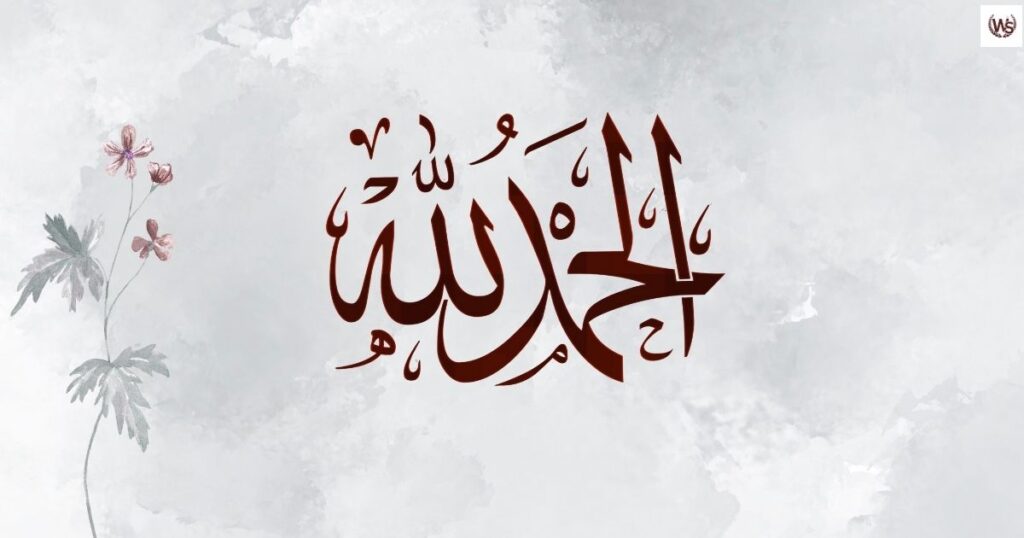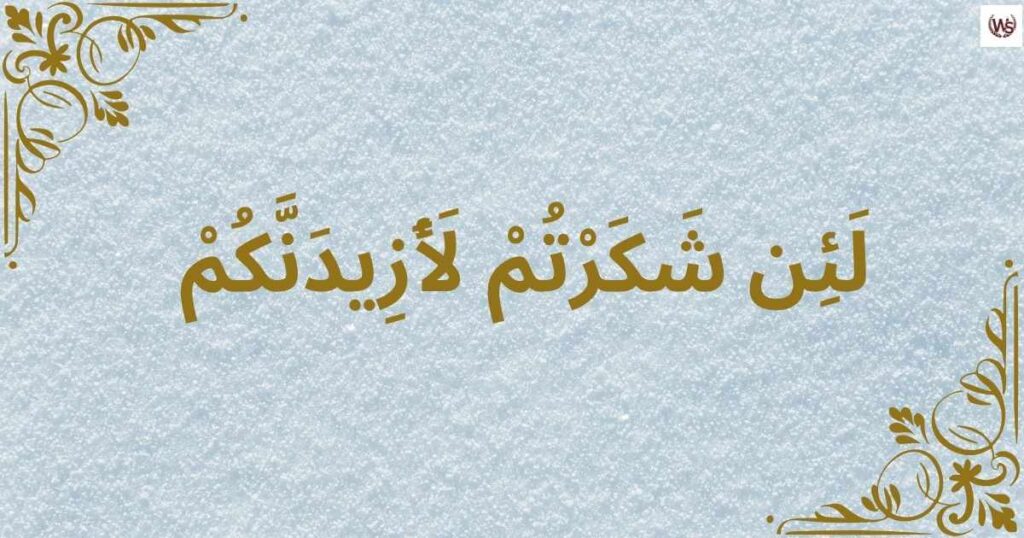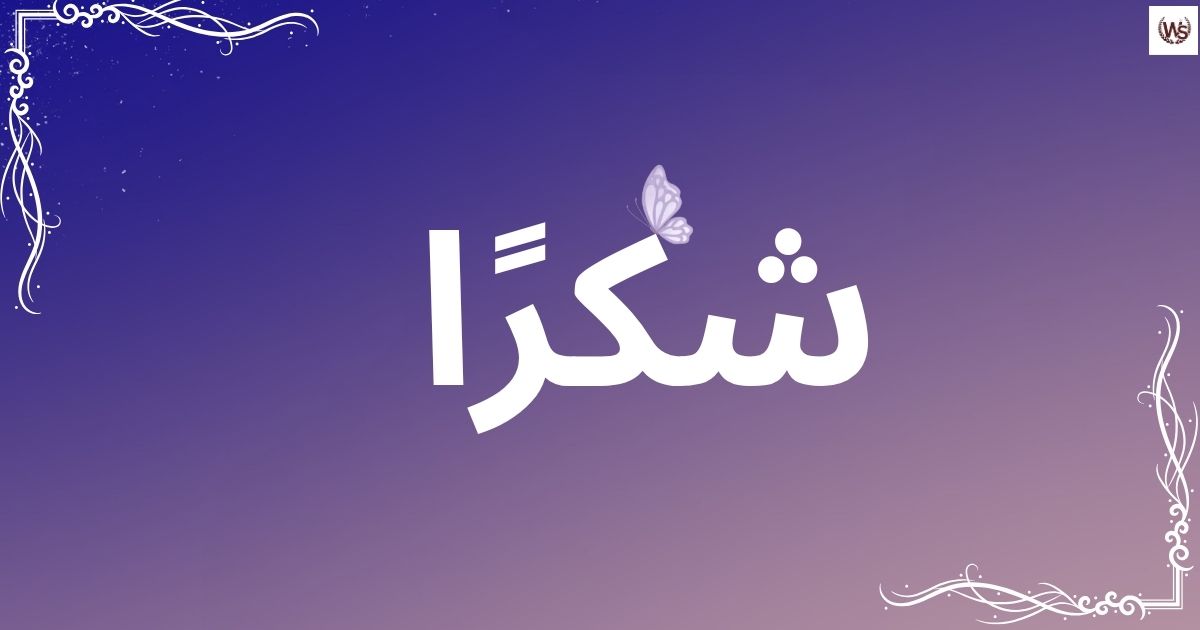Gratitude is a beautiful thing, but sometimes, finding the right words to express it can feel tricky, especially in another language. I remember hearing someone say “shukran” for the first time, and even though it was simple, it felt powerful. That’s when I realized: saying Thank You in Arabic isn’t just about words, it’s about meaning, warmth, and connection.
In this blog, we’ll explore different ways to say Thank You in Arabic, from everyday phrases to those rooted in tradition and faith. Whether you’re learning Arabic, traveling, or just curious, you’ll discover clear, creative ways to express sincere appreciation from the heart.
How to Say Thank You in Arabic
Sometimes, saying “thank you” is more than just good manners, it’s an art. Whether you’re traveling through the Middle East or connecting with Arabic-speaking friends, learning different ways to express gratitude can bring hearts closer.
While a simple “Shukran” does the job, there’s a world of warm, expressive phrases that can add sparkle to your words. In this section, we explore creative and meaningful ways to say thank you in Arabic.
- شكرًا (Shukran) – The classic! Use this any time you want to say “thank you” in a simple, polite way.
- شكرًا جزيلاً (Shukran Jazeelan) – A notch above the basic thanks, this means “thank you very much.”
- جزاك الله خيرًا (Jazak Allah Khairan) – A spiritual way to say thanks, wishing divine reward for the person’s kindness.
- ألف شكر (Alf Shukr) – Translates to “a thousand thanks.” That’s a whole lot of gratitude!
- ممنون (Mamnoon) – A softer, more heartfelt “grateful.” Ideal for deeper appreciation.
- تسلم (Tislam) – Casual, friendly, and warm. Like saying, “Bless your hands.”
- بارك الله فيك (Barak Allah Feek) – A blessing-filled thank you often used with affection and reverence.
- أشكرك من قلبي (Ashkuruk min Qalbi) – “I thank you from my heart.” Because sometimes, the heart speaks best.
- شكراً على كل شيء (Shukran ‘ala kull shay) – “Thanks for everything.” A great go-to when someone goes above and beyond.
- تقبل شكري (Taqabal Shukri) – A formal yet graceful way to say, “Please accept my thanks.”
- يعطيك العافية (Ya’tik al-‘afiya) – Literally means “may you be granted health.” It’s kind, caring, and cultural.
- مشکور (Mashkoor) – Popular in the Gulf, this is a warm, regional expression of thanks.
How Do You Say Thank You in Arabic in Formal Ways
In formal settings, your words carry weight, especially when you’re expressing gratitude. Whether you’re addressing a professor, elder, or colleague, the right phrase can leave a lasting impression.
There’s more than one proper way to say thank you in Arabic, and each version brings its elegance and charm. Let’s explore expressions that help you show respect, sincerity, and cultural awareness.
- لك خالص الشكر (Lak Khaalis al-Shukr) – “You have my sincere thanks.” It’s polished and professional.
- أشكرك جزيل الشكر (Ashkuruka Jazeel al-Shukr) – Means “I thank you deeply.” It’s a strong gesture of heartfelt thanks.
- أقدر مساعدتك (Aqdir Musaadatak) – “I appreciate your help.” Perfect after someone offers support or effort.
- أشكرك على وقتك (Ashkuruka ‘ala Waqtik) – “Thank you for your time.” A respectful nod to someone’s attention.
- هَذَا لُطْفٌ مِنْكَ (Haza Lutfun Minnak) – “That’s kind of you.” Simple, yet sophisticated.
- لك جزيل الشكر والامتنان (Lak Jazeel al-Shukr wal-Imtinan) – “You have deep thanks and gratitude.” Ideal in written messages.
- أنا ممتن لك للغاية (Ana Mumtannun Laka lil-Ghaya) – “I am extremely grateful to you.” Deeply formal, often used in speeches.
- تفضل بقبول شكري (Tafaddal bi Qabool Shukri) – “Kindly accept my thanks.” Polite and fitting in official emails or letters.
- شكري وامتناني لك (Shukri wa Imtinani Lak) – “My thanks and gratitude to you.” A strong phrase of formal respect.
- أشكرك على تعاونك (Ashkuruka ‘ala Ta’awunuk) – “Thank you for your cooperation.” Great in professional or team settings.
- أشكر لك اهتمامك (Ashkur Lak Ihtimamak) – “I thank you for your concern.” Thoughtful and gracious.
- مع خالص التقدير (Ma’a Khaalis al-Taqdeer) – “With sincere appreciation.” A graceful closing line in any formal note.
How Say Thank You in Arabic in Informal Ways
When you’re with friends, family, or someone you’re close to, a formal phrase might feel too stiff. In these moments, it’s better to keep your gratitude light, warm, and a little more playful.
That’s where informal phrases shine. They make thank-you moments feel real and personal because expressing appreciation doesn’t always need a polished touch. Here’s how to casually say thank you in Arabic while still sounding sincere.
- شكراً (Shukran) – This one never goes out of style. Just a friendly “thanks,” short and sweet.
- تسلم (Tislam) – A heartfelt “bless you,” often used when someone gives or does something nice for you.
- مشكور (Mashkoor) – Common in the Gulf, it casually means “appreciated.”
- يعطيك العافية (Ya’tik al-‘Afya) – Literally “may you have health.” Kind, cheerful, and very local.
- شكراً على كل شيء (Shukran ‘ala kull shay) – “Thanks for everything.” Perfect for those all-in-one moments.
- ممنون (Mamnoon) – Soft and polite, it simply means “grateful.” Use it for small gestures.
- أنت دايمًا طيب (Anta Dayman Tayib) – “You’re always kind.” A compliment and thank-you rolled into one.
- ربي يخليك (Rabbi Yekhalliak) – “May God keep you safe.” Commonly said after a kind favor.
- يا سلام عليك (Ya Salam ‘Alaik) – Means “wow, you’re amazing!” Great for spontaneous thanks.
- شكراً يا غالي (Shukran ya Ghali) – “Thanks, dear.” Casual and affectionate.
- عاشت إيدك (Aashet Eedak) – “Bless your hands.” Often used after receiving food or help.
- كبرت بعيني (Kibrit b-eini) – “You’ve grown in my eyes.” A fun way to show admiration and gratitude.
Thank You God in Arabic

Sometimes, words fall short when it comes to thanking the One above. In Arabic, expressing gratitude to God blends reverence with deep emotion, shaped by both faith and language.
If you’ve ever felt overwhelmed by blessings or simply want to say a heartfelt thanks to your Creator, these expressions offer the perfect way to do it. You’ll also notice that Thank You in Arabic carries not just meaning, but spiritual weight.
- الحمد لله (Alhamdulillah) – “Praise be to God.” It’s simple, sincere, and used in daily speech.
- شكرًا لله (Shukran Lillah) – A direct “Thanks to God.” Ideal when acknowledging divine help or ease.
- اللهم لك الحمد (Allahumma Laka Alhamd) – “O Allah, to You belongs all praise.” Often said after good news.
- بفضل الله (Bifadl Allah) – “By God’s grace.” A gentle reminder that blessings aren’t random.
- الحمد لله على كل حال (Alhamdulillah ‘ala Kull Hal) – “Praise be to God in every condition.” Even during tough times, this phrase brings peace.
- اللهم إني أشكرك (Allahumma Inni Ashkuruk) – “O God, I thank You.” Direct and personal.
- جزاك الله خيرًا (Jazak Allah Khairan) – While used for people, it’s also a way to thank God for sending help through others.
- اللهم إني ممتن لك (Allahumma Inni Mumtan Lak) – “O God, I am grateful to You.” Full of humility.
- نعمة من الله (Ni’mah min Allah) – “A blessing from God.” Often said when recognizing divine gifts.
- الله أعطاني (Allah A’tani) – “God gave me.” Said with joy when receiving something unexpected.
- ربي كريم (Rabbi Kareem) – “My Lord is generous.” A soft thank you with admiration.
- الحمد لله دائمًا وأبدًا (Alhamdulillah Da’iman wa Abadan) – “Praise be to God always and forever.” A timeless thank you.
Thank You in Moroccan Arabic
In Morocco, gratitude isn’t just something you say it’s something you feel. And the local language, Darija, brings that feeling to life with phrases that are heartfelt, down-to-earth, and full of charm.
While many expressions sound different from standard Arabic, they’re just as warm and meaningful. If you want to master more than just the usual Thank You in Arabic, these Moroccan phrases will come in handy.
- شكراً (Shukran) – You’ll hear this everywhere. Simple and understood across the Arab world.
- شكراً بزاف (Shukran bzaaf) – “Thanks a lot.” A friendly upgrade when you’re feeling extra grateful.
- بارك الله فيك (Barak Allah fik) – “God bless you.” A familiar phrase used after kindness.
- مشكور (Mashkoor) – A casual, old-school way of saying “Thanks.” Still common in many Moroccan homes.
- الله يخليك (Allah ykhalik) – “May God protect you.” A sweet way to show heartfelt appreciation.
- تبارك الله عليك (Tbarek Allah ‘alik) – Often said when someone impresses you. It’s part praise, part thanks.
- صافي باركة (Safi baraka) – “Okay, that’s enough, thank you.” Said when someone keeps helping more than expected.
- زيد خيرك (Zid khirak) – “May your kindness increase.” A blend of thanks and a wish for good.
- فهمت منك (Fhemt mennek) – “I understood you.” It’s often used to thank someone for explaining.
- ربي يحفظك (Rabbi y7fdek) – “God protect you.” Warm, genuine, and often emotional.
- الله يعاونك (Allah y3awnak) – “May God help you.” A kind response to someone’s help.
- merci – Borrowed from French, but very Moroccan! A quick, casual thank-you.
5 Ways to Say “Thank You” in Arabic
Whether you’re learning for travel, friendship, or just fun, knowing a few different ways to say thanks can go a long way. Instead of sticking to the same phrase every time, try mixing it up with these heartfelt expressions that show genuine appreciation. You’ll notice how people light up when you say Thank You in Arabic with care.
1. Shukran (شكراً)
Shukran (شكراً) is the most common and widely used way to say “thank you” in Arabic. It’s short, sweet, and fits almost every situation, formal or casual. Whether you’re receiving a favor or just good vibes, “Shukran” always does the job.
2. Tislam/Tislami (تسلم/تسلمي)
Tislam (تسلم) for males and Tislami (تسلمي) for females are friendly ways to say “bless you” or “thank you kindly” in Arabic. They literally mean “may you be safe” and are often used after receiving help or kindness. These phrases carry warmth and gratitude, especially in everyday conversations.
3. Mamnoun(t)ak/ek (ممنونك/ممنونتك)
Mamnounak (to a male) or Mamnounek (to a female) is a warm and polite way to say “I’m grateful to you” in Arabic. It’s often used in Syria, Lebanon, and nearby regions to express sincere appreciation. This phrase carries a respectful, slightly formal tone—perfect for thank-yous that matter.
4. Ya‘tik al-‘afiya (يعطيك العافية)
Ya‘tik al-‘afiya (يعطيك العافية) literally means “may God give you health” and is commonly used to thank someone for their effort or hard work. You’ll often hear it after someone helps you, serves food, or finishes a task. It’s a thoughtful way to say thanks while wishing them well at the same time.
5. Yekather khairak/ek (يكثر خيرك)
Yekather khairak (to a male) or Yekather khairek (to a female) means “may your goodness increase.” It’s a heartfelt way to say thank you, especially when someone has done something generous. This phrase blends gratitude with a warm blessing, making it extra special.
Expressions of Gratitude in Quranic Arabic

Gratitude is a central theme in the Quran, woven through its verses like golden threads in a beautiful tapestry. Whether you’re thanking a friend or reflecting on divine blessings, these classical expressions still hold powerful meaning today. They go beyond just manners they touch the heart and soul.
In this section, we’ll explore timeless ways to say Thank You in Arabic straight from Quranic roots, yet still relevant in daily speech. Let’s dive into their beauty and meaning:
- Alhamdulillah (ٱلْـحَـمْـدُ للهِ)
Meaning “All praise is due to Allah.” Used to express gratitude to God in all situations. - Shukran lillah (شكراً لله)
A direct way of saying “Thanks to God,” reflecting personal appreciation for blessings. - Ashkurullah (أشكر الله)
A softer, more intimate “I thank Allah,” often used in personal prayers. - La’in shakartum la’azidannakum (لَئِن شَكَرْتُمْ لَأَزِيدَنَّكُمْ)
“If you are grateful, I will surely increase you” (Quran 14:7). A divine promise tied to thankfulness. - Innallaha shakirun ‘aleem (إِنَّ اللَّهَ شَاكِرٌ عَلِيمٌ)
“Indeed, Allah is appreciative and all-knowing.” Shows how gratitude is divine in nature. - Wa bi ni‘mati rabbika fahaddith (وَأَمَّا بِنِعْمَةِ رَبِّكَ فَحَدِّثْ)
“And proclaim the blessing of your Lord.” An invitation to express thanks openly. - Shākirīn (شاكرين)
A descriptive term meaning “those who are grateful.” - Nashkuruka Rabbana (نَشْكُرُكَ رَبَّنَا)
“We thank You, our Lord”—collective gratitude expressed in prayer. - Khayr al-shākirīn (خَيْرُ الشَّاكِرِينَ)
Refers to Allah as “the best of those who show gratitude.” - Afala tashkuroon (أَفَلَا تَشْكُرُونَ)
“Will you not then give thanks?” A reflective phrase to stir appreciation. - Ajran ghayra mamnoon (أَجْرًا غَيْرَ مَمْنُونٍ)
“A reward without end”—given to those who are thankful. - Wasayajzi Allahu al-shākirīn (وَسَيَجْزِي اللَّهُ الشَّاكِرِينَ)
“Allah will reward the grateful.” A powerful reminder that thankfulness brings reward.
Read More: 60+ Ways to Say Thank You for Your Consideration Professionally
FAQ’s
What is the most common way to say thank you in Arabic?
The most common phrase is “shukran” (شكراً), used in both formal and casual situations.
How do you say thank you to God in Arabic?
You can say “Alhamdulillah” (الحمد لله) or “Shukran lillah” (شكراً لله).
Is there a Quranic way to say thank you in Arabic?
Yes, phrases like “Ashkurullah” (أشكر الله) and “La’in shakartum la’azidannakum” come from the Quran.
What does the expression “Wasayajzi Allahu al-shākirīn” mean?
It means “Allah will reward the grateful”, encouraging thankfulness.
Why is learning how to say Thank You in Arabic important?
It helps you connect with Arabic speakers respectfully and understand cultural and spiritual values.
Conclusion
Shukran (شكراً) a small word with a big heart. From everyday chats to ancient Quranic verses, saying thank you in Arabic carries deep meaning and beautiful emotion. It’s more than politeness; it’s a bridge between hearts and cultures.
By exploring different phrases, from casual expressions to divine gratitude, you’ve now got the tools to say thanks in ways that truly resonate. So next time someone touches your life, pick a phrase that fits and let your appreciation shine in the language of kindness.

Rubab, the creative mind behind Wishes That Connect, Inspire, and Celebrate, crafts heartfelt messages that make every moment memorable. With a passion for meaningful words and a flair for celebration, Rubab’s wishes help you express love, joy, and appreciation in the most thoughtful way. Whether you’re looking for something sweet, emotional, or fun, her words are made to connect deeply, inspire smiles, and celebrate life beautifully.


